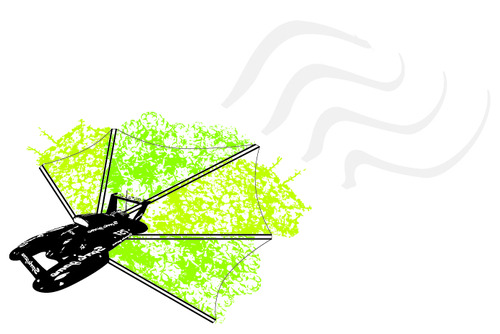Boston November Awesome Fellowship: Cleaning The East River with Eco Pod Armada
November 4, 2009
 Sorry for the delay, this month’s granting process ended up taking slightly longer than originally expected, but, for reasons that will become obvious in a few weeks, we’ve been swamped, cooking up some upcoming things that will hopefully do well by forwarding the interest of Awesome in the universe. It’s gonna be great. Stay tuned.
Sorry for the delay, this month’s granting process ended up taking slightly longer than originally expected, but, for reasons that will become obvious in a few weeks, we’ve been swamped, cooking up some upcoming things that will hopefully do well by forwarding the interest of Awesome in the universe. It’s gonna be great. Stay tuned.
Today, Awesome Foundation Boston is tremendously excited today to announce that they are awarding their November Awesome Fellowship to Lee Altman, an architect and urban designer working out of New York City.
With a team of scientists, Lee has plans to assemble a complete armada of remote-controlled pods, and set them loose with a series of pilots into the notoriously polluted East River of New York City. The pods will carry a net of plants to trail behind them in the water, specially selected to perform phytoremediation — naturally filtering water through the root mass and the absorbing the toxins from the water. Her hope is to build these launches into a regular community event with plans available online that will allow anyone to build one themselves (the designs are great and lightweight: initial calculation suggests that each ship can be made for $110) Our funding will go to making the initial fleet, of eight ships, possible. We’re thrilled to have her on board as a fellow — congratulations to Lee!
Friends in Providence will be announcing their grant award this month pretty soon as well. And, as per usual, we’ve got our awards ceremony coming up next week. Watch this space as the details come on out.
Lee’s complete grant and description, after the jump:
Dear Awesome Foundation,
I would like your help in constructing a fleet of aquatic phytoremediation interactive mobile pods that will be launched onto the East River. Each pod will be built of a remote-controlled speed boat, wooden rods, a fishing net, hydroponic plants and some duct tape.
The pod operators will use the remote to navigate the pod along the water’s edge, as they travels south with the currents. The boat will perform as the pod’s motor, carrying around the hydroponic plants supported by the wood-net-duct tape structure.
The plants will be specifically selected to perform phytoremediation in the river waters. Plants such as Arabidopsis halleri and Arabidopsis thaliana are naturally equipped with extreme metal tolerance. In fact, the feed on heavy metals found in the ground or water that they grow in. What they do is also called Rhizofiltration, when water is filtered through the root mass and the roots absorb the toxins from the water.
Rhizofiltration is a long process, but the little fleet of pods can be launched repeatedly (preferably on the weekends) until it cleans the water, or better yet, gets the message across. Launching and operating the pods will become a recreational public activity, anyone can build a DIY pod, and launch it in the nearest body of water. Pods will become a household item.
A recent article in the New York Times discussed the changes that some coal-fired power plants have introduced, attempting to reduce toxic air emissions. The technology they use sprays water and chemicals through the plant’s chimneys, “scrubbing” the pollutants out of the air before releasing it to the atmosphere. This process produces large amounts of waste water that is then released into rivers and lakes, and leaks into groundwater. Power plants are the nation’s biggest producer of toxic waste, surpassing industries like plastic and paint manufacturing and chemical plants (according to a New York Times analysis of EPA data). The EPA’s tough air pollution laws are not met with comparable regulation in the Clean Water Act. In fact, the Act does not cover the most dangerous chemicals in power plant waste, like arsenic and lead.
The pod fleet has no intention of taking on coal-fired power plants, the EPA or Wall Street. It is interested in establishing an unhindered relationship between people and their waters. NYC is historically designed to face inwards, pushing industry and highways to the water’s edge. Recently, the city has started to realize that it’s actually an archipelago. The pod fleet would like to help establish this new relationship between residents and their waters, including the responsibilities we all share.
The pod fleet captain (me) is an architect and urban designer based in NYC. I was born and raised in Israel, and received my B.Arch from the Technion IIT and my MSc from Columbia University. The fleet pod was born out of a conversation with two of my former colleagues at Columbia, and is based on studio projects we designed together in NYC and in Bangkok.